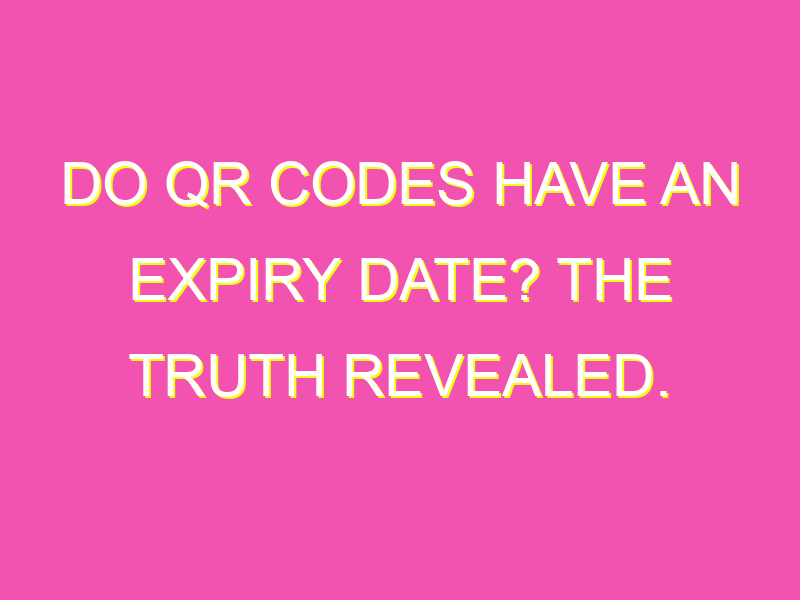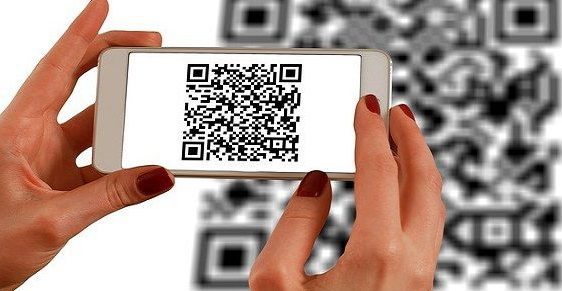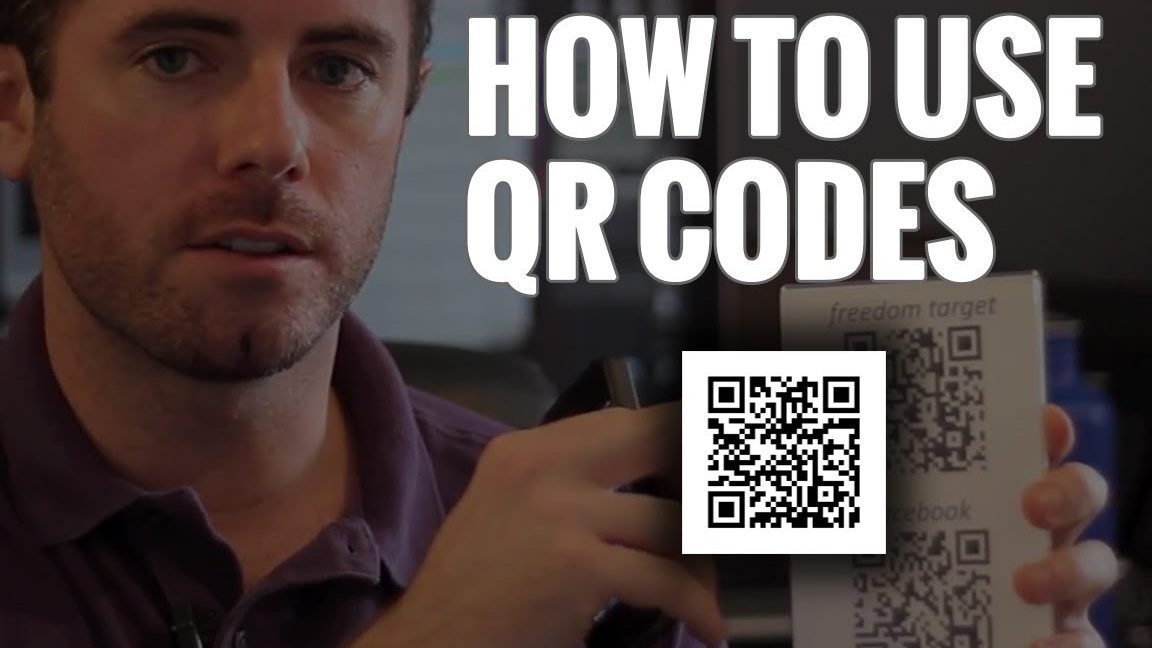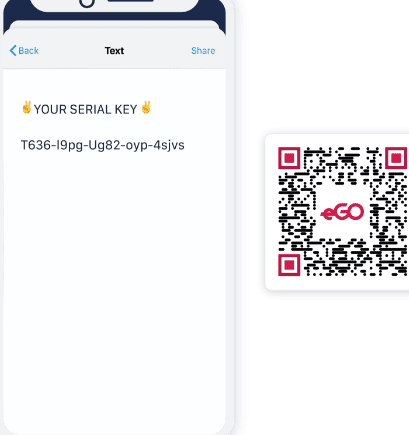Let’s talk QR codes – the futuristic little boxes that are revolutionising the way we interact with the world around us. But did you know that dynamic QR codes can go from hero to zero if they’re not updated regularly? Here are the key points to keep in mind about QR code expiry:
So don’t let your QR codes fall flat – stay on top of their expiry date and keep them fresh and fabulous!
Do QR Codes Have an Expiry Date?
In today’s world of fast-paced developments in technology, QR (Quick Response) codes have become an important part of business strategies. Transacting businesses have incorporated QR codes in their advertisements and products to make it easy for consumers to access data about their merchandise. However, the big question is, do QR codes have an expiry date? In this article, we will discuss the relevance of QR codes and what causes them to expire or stay active.
Static QR Codes
Static QR codes are a simple array of black and white squares that do not have any update features or redirection options. They basically represent a specific set of data, and once generated, the data stays fixed. Even though it is possible to change the data, this would require the generation of a new QR code. Since static QR codes have fixed data, it can be confirmed that they do not expire. Therefore, if a brand decides to use a static QR code to link to their website, the code’s information will always lead to the same information, without any chance of changing.
Dynamic QR Codes
Dynamic QR codes are the ones that can be updated with new information and get redirected to different sources, making it the preferred choice for businesses to market their product effectively. The dynamic QR codes can fetch new information from a website or a connected database, making them leading-edge tracking tools. For example, when customers scan the dynamic QR codes of products, they get redirected to the product’s webpage where they can review the latest detailed information about the product.
Dynamic QR Codes and Information Updates
Dynamic QR codes work best when the data they represent is updated regularly. Some QR codes can generate new information daily, but it’s infeasible to regenerate QR codes daily to contain the latest data. Instead, the dynamic QR codes are redirected to a centrally updated database that provides the latest information required. Nonetheless, these QR codes have associated data, which tends to get updated from time to time. This updated information can change the original data associated with the QR code leading to its expiry.
How QR Codes Function
All QR codes consist of an array of black and white squares that use a specific algorithm to translate them into information. When scanned, the QR code identifies itself and redirects the scanner to the associated information. This information is usually in the form of URLs, text, or short messages, such as contact information. The technology behind QR codes is based on the use of light-emitting diodes to scan the images and a computer program to decode the translated information.
Validity of QR Codes
As mentioned earlier, static QR codes do not expire. When they are scanned, the code will always contain the same data. Dynamic QR codes remain valid as long as they are associated with consistent up-to-date data. The moment the data undergoes changes that make the code irrelevant, it won’t be considered valid.
QR Codes and Retrieval of Information
QR codes are essential because they provide a convenient way for consumers to access information about a product or service. Since the code is scannable, consumers don’t have to type or memorize URLs, and they only require a camera-enabled device to access the information. The codes link the user instantly to a website or a product’s information, creating an efficient way of communication between businesses and their customers.
How to Keep QR Codes Active
To keep QR codes active, updating is essential. Companies that use QR codes must make sure that the codes always contain relevant and up-to-date data. Hence, updating code URLs or changing the URLs’ hosting frequently can lead to the loss of valuable data. Besides, static QR codes can be an excellent resource for businesses to have as they don’t decompose over time.
Summing it up, technically, QR codes don’t have an expiration date. Static codes are like a photo taken at a particular instance, whereas dynamic ones get connected to a wealth of information at any given time. However, when the information linked to a dynamic QR code becomes out of date, QR codes become invalid. At the same time, updating them at reasonable intervals makes them communicate effectively between brands and their customers.





